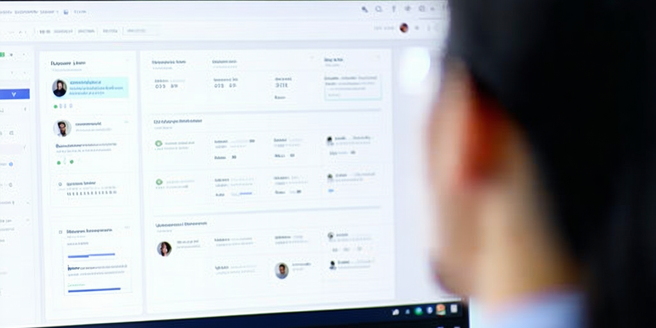
Understanding Transitional Care Management (TCM)
Transitional Care Management (TCM) is a critical healthcare service designed to ensure patients receive appropriate support after being discharged from a hospital or similar facility. TCM is aimed at reducing the chances of readmission by providing a structured and coordinated approach to care that bridges the gap between hospital and home. This management involves a comprehensive assessment of the patient’s needs, timely follow-up visits, and effective communication between healthcare providers. By implementing TCM, healthcare professionals can address potential issues that may arise during the transition period, thus improving patient outcomes and experiences. Moreover, understanding TCM enables caregivers to better coordinate care, manage medications, and provide necessary educational resources that empower patients and families for successful recovery.
Eligibility Criteria for Medicare TCM Services
To qualify for Medicare Transitional Care Management (TCM) services, a patient must have been discharged from an inpatient hospital setting, skilled nursing facility, or rehabilitation center. The discharge must have taken place within the last 30 days. While eligible, the patient must also require medically necessary services that include an interactive contact within two business days post-discharge, a face-to-face visit within 14 days, and non-face-to-face services that address follow-up care. These criteria ensure that only patients with a higher need for active coordination and management are enrolled. Understanding the eligibility requirements helps patients and caregivers know when these vital services can be fully utilized, facilitating a smoother transition from inpatient care to home care and aiming at reducing overall healthcare costs associated with avoidable readmissions.
Key Components of Successful TCM
Successful Transitional Care Management (TCM) hinges on several key components that ensure effective patient support post-discharge. First, communication is vital, requiring timely information exchange between healthcare providers, patients, and caregivers. Second, medication management must be prioritized, ensuring prescriptions are correctly understood and adhered to, avoiding potential complications. Third, timely follow-up appointments and consultations are crucial, allowing healthcare providers to monitor patient progress and address any emerging issues. Fourth, continuous education should be provided to patients and families about self-care techniques and warning signs to watch for. Finally, psychosocial support is indispensable, especially for patients with additional mental health needs, thus fostering holistic healing. Integrating these components not only improves patient outcomes but also reduces the risk of readmissions, making TCM a pivotal aspect of post-acute care.
How to Enroll in Medicare TCM Programs
Enrolling in Medicare’s Transitional Care Management (TCM) programs involves a coordinated effort between patients, providers, and healthcare facilities. Initially, a patient must be discharged from a qualifying setting, such as a hospital or rehabilitation center. Upon discharge, healthcare providers are responsible for enrolling eligible patients into the TCM program by facilitating the necessary documentation and communication. The provider, typically a primary care physician, will schedule a required face-to-face visit within 14 days to initiate TCM services. During this visit, the patient’s care plan is reviewed, including medication adherence, follow-up appointments, and necessary testing. Patients can ensure continued participation by staying in contact with their providers and remaining engaged in their care plans. By adhering to these steps, the enrollment process becomes a seamless transition, ensuring patients receive comprehensive post-discharge support.
Benefits of Effective Transitional Care
Effective Transitional Care Management (TCM) offers numerous benefits that significantly enhance patient outcomes and healthcare efficiency. Firstly, it reduces hospital readmission rates by addressing potential post-discharge complications through proactive monitoring. Secondly, it improves patient satisfaction by ensuring a seamless transition from inpatient care to home, including comprehensive support in medication management, follow-up care, and health education. Thirdly, effective TCM enhances coordination among healthcare providers, fostering a collaborative approach that addresses all patient needs holistically. Another benefit is cost-effectiveness, as reducing readmissions and complications diminishes the financial strain on both patients and healthcare systems. Lastly, it empowers patients and their families, as TCM programs emphasize education and support, enabling patients to manage their conditions better and making informed decisions about their health.
Overcoming Challenges in TCM Implementation
Implementing Transitional Care Management (TCM) can encounter several challenges that healthcare providers must overcome to ensure patient success. One significant hurdle is the coordination between different care teams, which requires effective communication channels and shared information systems. Another challenge is patient engagement, as patients may struggle to adhere to follow-up visits and medication plans. Ensuring provider availability for timely follow-up appointments is critical yet often difficult due to workloads. Reimbursement issues might arise if providers do not fully understand TCM billing requirements, leading to financial disincentives. Overcoming these challenges involves investing in robust communication systems, enhancing patient education and motivation strategies, optimizing scheduling processes, and providing thorough training on TCM billing and documentation. By addressing these hurdles, healthcare systems can improve the efficacy of TCM, leading to better patient outcomes and reduced readmission rates.
